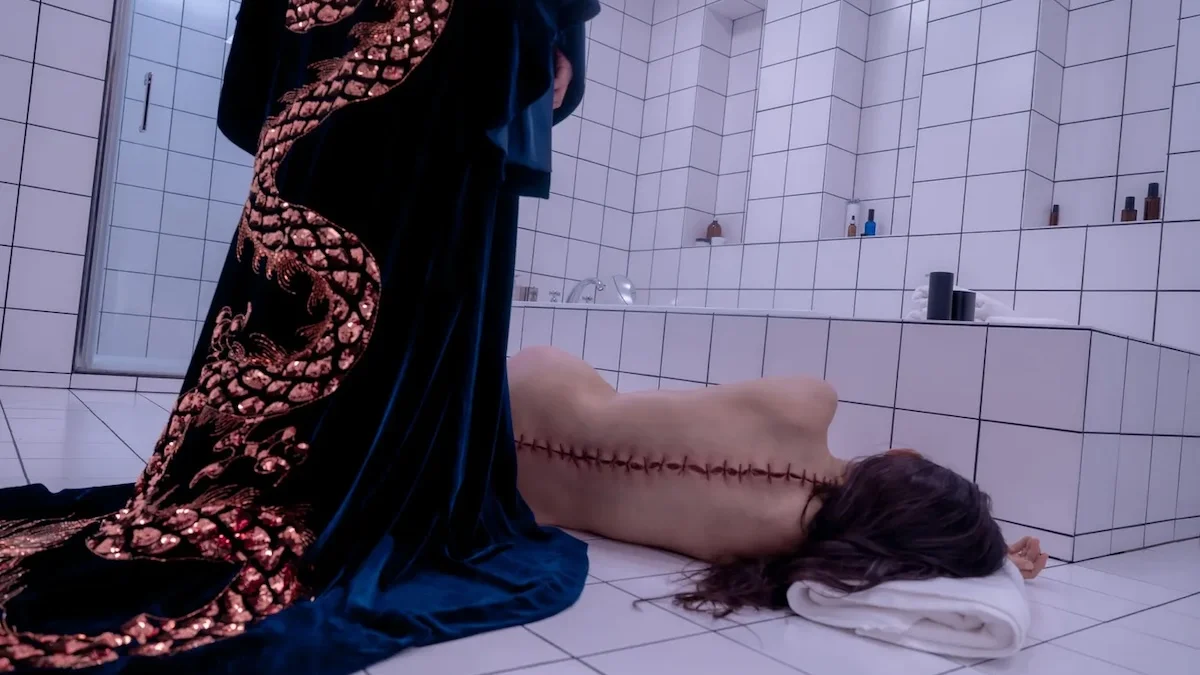Cannes 2024
Coraline Fargeat outdoes Titane and brings body-horror to Cannes: Demi Moore is impressive
Here it is, the new Titane. Although it shares some poetic-stylistic similarities with Julia Ducournau’s infamous Palme d’Or winner, there’s no comparison: it’s significantly better.
Addressing themes through images and sounds, Zeitgeist and authorship, drawing from various sources (from The Picture of Dorian Gray to Frankenstein, from Mulholland Drive to All About Eve), and encompassing body-horror and female empowerment, Coralie Fargeat’s second film, made in the USA, competes at Cannes 77: The Substance, backed by Working Title and Universal, although it feels like an A24 production.
The Substance injects into the veins and changes lives, offering a better version of oneself: younger, more beautiful, more perfect. The only condition is to share time with an alter ego: one week each, maintaining balance, or else…
Thus, “You, but better in every way,” the revolutionary product based on cell division, is ideal for Elizabeth Sparkle (an indomitable Demi Moore), a once-certified film star on the Walk of Fame and now a fitness television star à la Jane Fonda 2.0, who is about to be replaced by her ghastly boss, broadcaster Harvey (Dennis Quaid), representing the male, sexualizing gaze. The split will catalyze the epiphany of Sue (Margaret Qualley, from Yorgos Lanthimos’ Kinds of Kindness), who is indeed younger, more beautiful, and… more determined.
Born in Paris in 1976, Fargeat seems to revisit a theme explored in her 2013 short film Reality+, where a brain-implanted chip allowed people to see and be seen as models, while the blood and gore undoubtedly come from her first gory feature film, Revenge, where a raped and abandoned girl in the desert returned thirsty for vengeance.
The Substance is filmed divinely, but by a lesser god: the rule is Instagram, reels, and culinary trends, the rule is TikTok with dances and twerking, while the manifestation of the substance is pure unboxing. The direction is contemporary, driven by social media art, reflecting on the society of image and spectacle, perfectly fitting the film’s ideology of the present-day obsession with image.
“Pretty girls must always smile,” preaches Harvey, and here’s Venus Sue, younger, beautiful, and high-performing, created through unorthodox parthenogenesis to match societal and Elizabeth’s expectations. But how long can this balance last before internal conflict erupts?
The impending competition will eventually transform the Janus-faced duo into the Monstro Elizasue. For every pixel of beauty Sue gains, Elizabeth experiences equal and opposite aging and incapacity, physically and mentally. Did you really think only Dorian Gray’s portrait aged? Thus, how much will our ambition, our will to persist through image and imagination, force our identity and nullify our existence, creating a homicidal and essentially suicidal alter ego?
Fargeat has some good ideas, derivative but effective, with strong images and a firm, ruthless, and bloody grasp on the genre – how much will rival David Cronenberg like this film? – and a sharp dive into showbiz and social extensions, with the perfect and symptomatic choice of Demi Moore as the anti-heroine, forced to birth and nourish the simulacrum of herself from her own spine, a copy of an original too old to fit global mass media consumption.
It’s not a film for everyone, but it will resonate with many: one might not be thrilled by it, as some aren’t, but cannot deny its greatness and definition, quantity masquerading as quality.
Here, it’s more Cronos than Titane, and it’s intriguing that the broken pact, the seven days of this re-creation, is about time, not space.
Moore performs raw and prosthetic, worthy of an award, while Qualley declares the future is hers, beyond the role.
As Cronenberg meets Lynch, and perhaps an Elephant Woman, the casting observation sizzles: “Should have breasts in the middle of the face.” What if we got what we wished for?
PS: Did we miss the intended feminism, did Fargeat omit it, or is it in the monstrous blood rain?
Cinematografo, May 20, 2024





